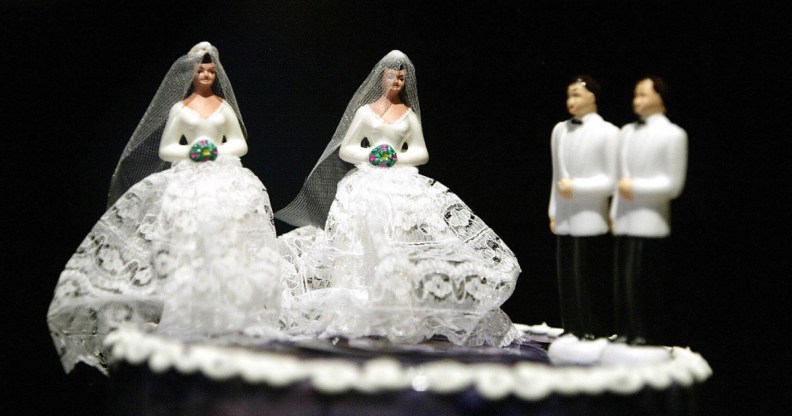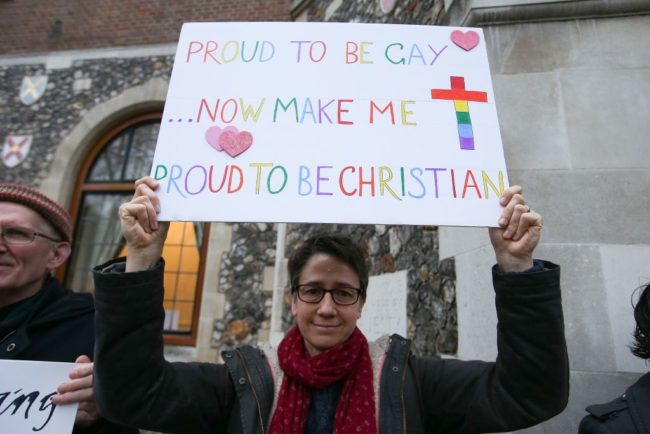Church movement in Malta fears marriage equality ‘will open door to sperm donation’

A religious movement in Malta aired fears that if the country legalises same-sex marriage then the “door will be opened to sperm donation”.
The Cana Movement of the Maltese Church has said that if marriage equality is legalised then it should not mean that children are denied of “having both a mother and father”.

(Photo by DANIEL LEAL-OLIVAS/AFP/Getty Images)
Spokespeople for the movement claimed that introducing same-sex marriage in the country was just a “prelude” to changing sperm donation and surrogacy laws.
“Equality before the law should not be a pretext to deny differentiation. Whereas it is the legislator’s duty to regulate different forms of relationships, this is not a justification to redefine marriage or attempt to alter the nature of marriage,” the Cana Movement said.
The religious sect went on to insist that “marriage was, is and remains a life-long union between one man and one woman”.
“Neither should the proposed law promote deletion of references to man and woman, husband and wife, both of which have important and complementary roles in the procreation and bringing up of children”.
They stressed that they were not being discriminatory by backing laws which distinguished “different forms of relationships”.
“On the contrary they acknowledge and respect differences, particularly in a society which celebrates pluralism and diversity.”
It comes after the President of Malta, Marie-Louise Coleiro Preca, announced earlier this month that she and the government will push through the marriage equality bill as quickly as possible.
Following the election of Prime Minister Joseph Muscat at the start of June, President Coleiro Preca said that the movement for civil rights would build on the PM’s first successful term which saw the first budget surplus for three decades.
Malta is a socially conservative Catholic country.
Divorces were only legalised in 2011, and civil unions were introduced in 2014.
Malta recently became the first country in Europe to ban “gay cure” therapy.
The island nation made history as it passed a bill which meant that any medical professional found guilty of practising the homophobic “therapy” could face a prison sentence.
Offenders can face a fine of up to $5,000 or up to five years in prison in more serious cases.
Prime Minister Joseph Muscat urged Commonwealth countries to overthrow archaic anti-LGBT laws stemming from Colonial times.

